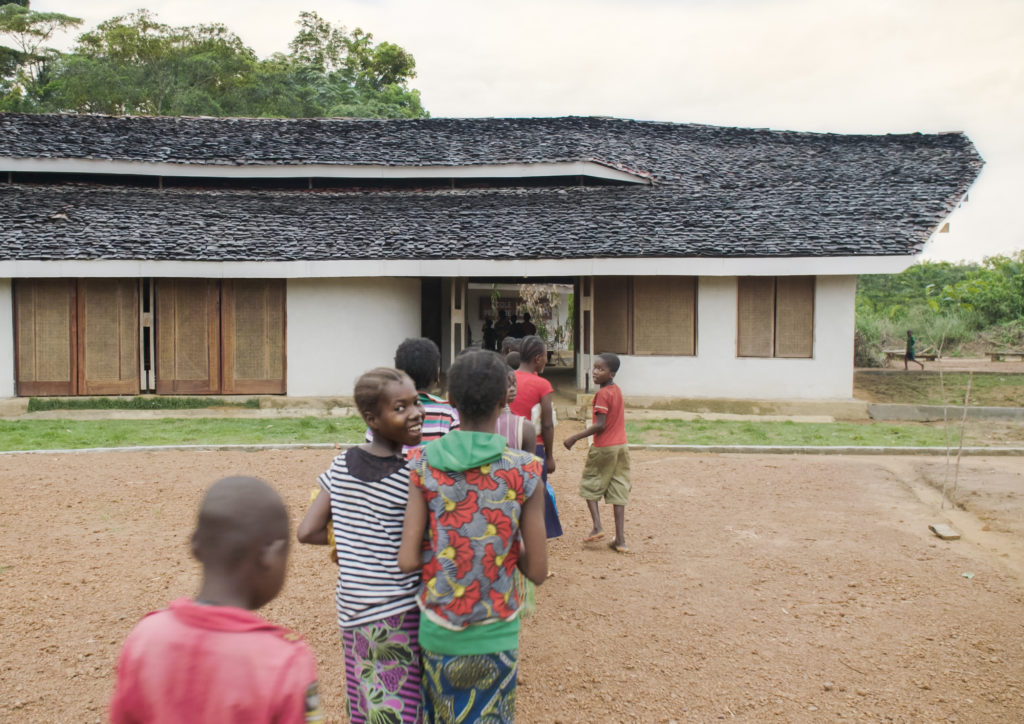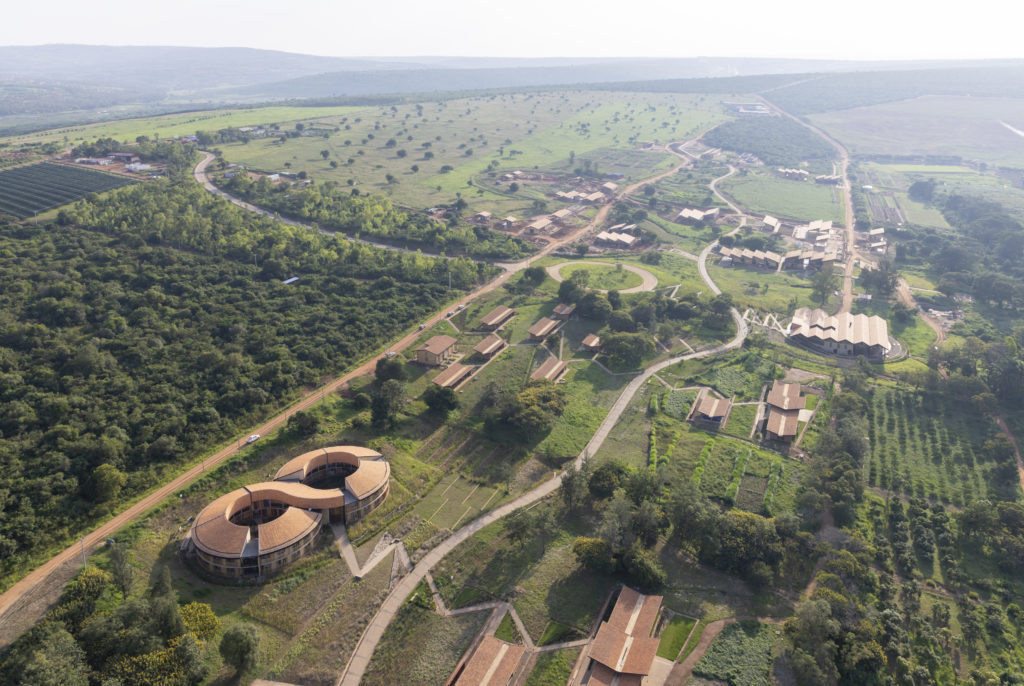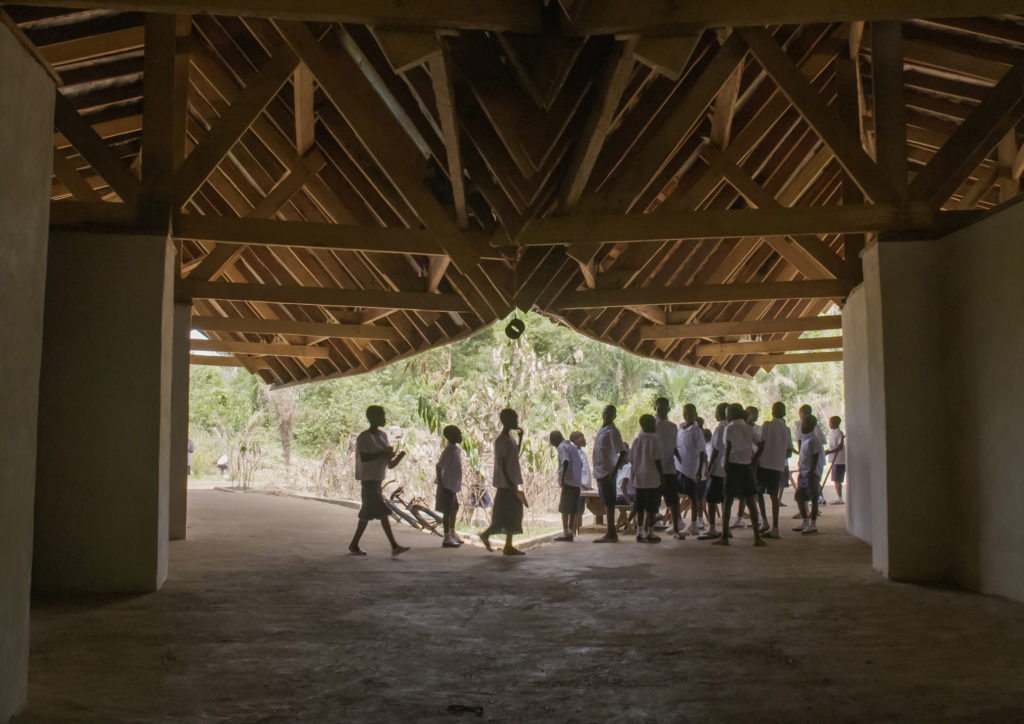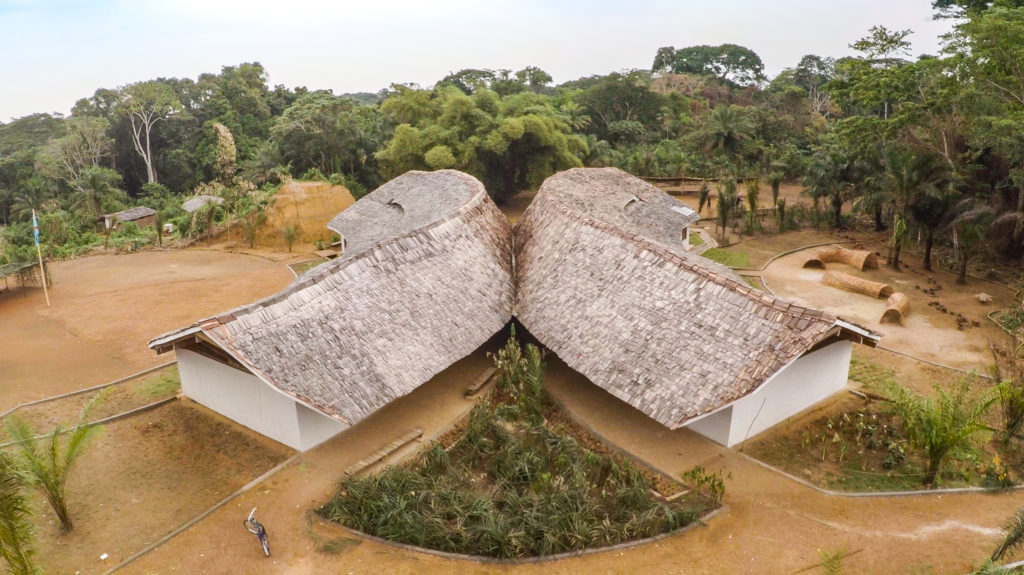We are at a turning point in our relationship to nature — up until now, we have perceived nature as an abundant and boundless resource. As our populations grow globally, we have come to a point where nature is being limited by its proximity to urbanization, and where nature’s bounty is being exhausted by generations of harvest and extraction without attending to how we replenish what we reap. When biodiversity is threatened, the resulting imbalances yield catastrophic results: plague, famine, and fire. When in balance, biodiversity can heal and nourish. What is design’s role in preventing the former and nurturing the latter?
MASS Design Group’s work over the last decade, predominately in East Africa, taught us that it is possible to design for a flourishing people and planet. The principle of One Health is premised upon the understanding that human, animal, and ecological health are inextricably intertwined. It recognizes that one system’s health directly affects all other systems. And work across a range of projects in conservation, health, and agriculture has led us to a philosophy of practice which transcends geography.

The evolution of this methodology is revealed through selected conservation projects. These projects attempt to respond and exist within the specific climatic zones they inhabit, such as the Ilima Primary School in a remote section of the Democratic Republic of the Congo. Construction employed exclusively local materials that were harvested and fabricated within ten kilometers from the site, including custom-made shingles, compressed mud bricks, and beams using local timber; the schoolhouse now serves as a primary school and community center for safe and mutually-beneficial integration with local wildlife. Another project, the Grumeti Fund RISE Research Facility in the Serengeti, focused on reducing conflict between human and animal populations.The facility is completely off-grid, with an independent photovoltaic array, rain-water harvesting, and wastewater treatment, supporting the Grumeti Fund’s existing research, monitoring, and management initiatives, which include human-wildlife interactions, invasive species management, and endangered species re-integration. Each case is defined by climate, context, and species that thrive within its One Health system, the materials that were generative in the development of the architecture, and the people and processes that yielded projects intended to foster opportunity among the constituents who use them.
Uncovering the possibilities for this restorative work requires interdisciplinary fluidity. Innovation happens in those areas of overlap, but relies on exhaustive inquiry, testing, and iteration. We explore this from the perspectives of a wide ranging group of people, which includes landscape architects and engineers, artists and chefs, ecologists and craftspeople, educators and policymakers, to name a few. We explore at the scale of an ecosystem and down to the fabrication of furniture, revealing how a philosophy of performance and provenance, and a belief in One Health, is woven into each decision.

The Rwanda Institute for Conservation Agriculture (RICA) highlights how an interdisciplinary approach to higher education, agriculture, and design can provide innovative solutions for restoration and regeneration. Located in Rwanda’s Bugesera District, on the shores of Lake Kilimbi and Lake Gaharwa, whose waters feed the Nile River, RICA exemplifies the possibilities of a One Health approach—in both its design and educational curriculum — to balance the needs of food production with the conservation of biodiversity. RICA’s program will train the next generation of Rwandan innovators and entrepreneurs in conservation agriculture to address food insecurity in a responsible way, reinforced by a campus which promotes biodiversity, ecological conservation, and community participation.

Architecture was pushed to its limit with RICA, in a single large project with over 3,400 acres and almost 70 buildings, modeling what we believe may be the first truly regenerative, climate-positive, university built from the ground up. Ninety-six percent of materials used across RICA (by weight) are sourced from within Rwanda. The campus uses pivot and drip irrigation, with its own solar farm and water treatment plant, making it energy independent. MASS also designed and oversaw the production of all furniture and fixtures, collaborating with over 85 artisans, entrepreneurs, and cooperatives in Rwanda to design over 180 unique products for the campus.
We think holistically about the materials we’ll build with, where they come from, how they are extracted and harvested, who manufactures, transports, and assembles them, as opportunities to embody and evoke the principles of conservation, stewardship, and equity. Building this way is about context, people, and process. We have to understand the historical, cultural, and environmental conditions where we operate in order to build effectively. With RICA, this search led us on a journey to source materials and makers to create projects that are innately contextual. We’re learning from makers like Rwandan ceramicist Wellaris Ndongozi, weaver Souzane Murekatete, and Master carpenter Theophile Ndoreyaho, who are profiled alongside other collaborators.

While architecture and landscape architecture projects serve as the vehicle for our primary investigation, the work of storytelling and advocacy is depicted through the narratives of myriad collaborators who study, make, and use these spaces.
These projects and stories lead us to a belief that when concepts of One Health guide us, and the manifestation of our spaces consider both their performance and provenance, there is opportunity for restorative work amidst a planet in crisis. A perspective that views good design as something that must be both beautiful and just. It is essential to delivering human rights, essential services, and the spaces that will build a better world. This is restorative practice. Educational spaces have a large role to play in this process, by inspiring the next generation of community leaders, thinkers, entrepreneurs and activists. We must provide the spaces that lead the way, inspired by One Health principals, in order so that they can see them to deliver them in their future roles.

